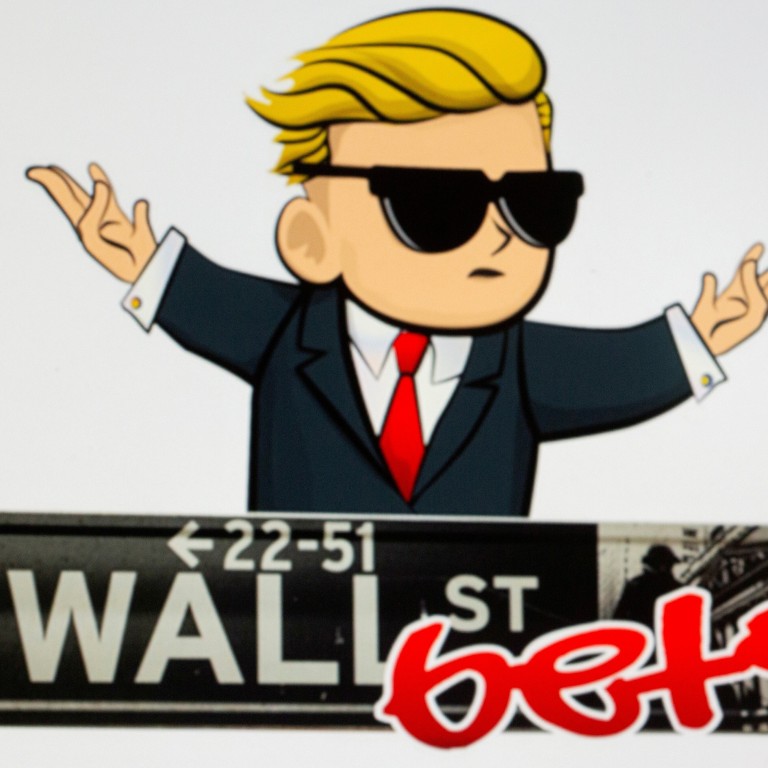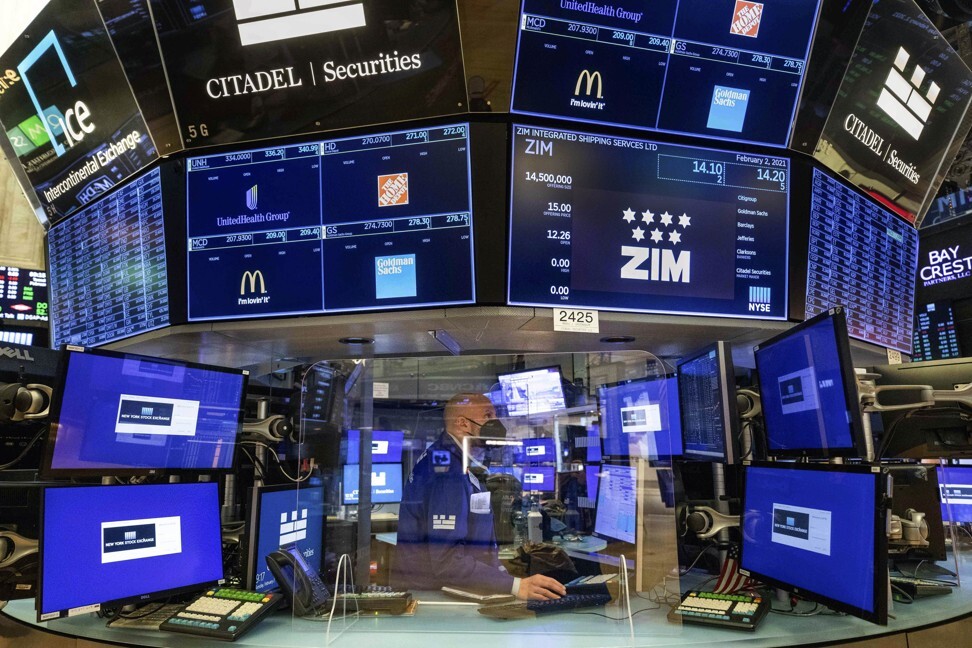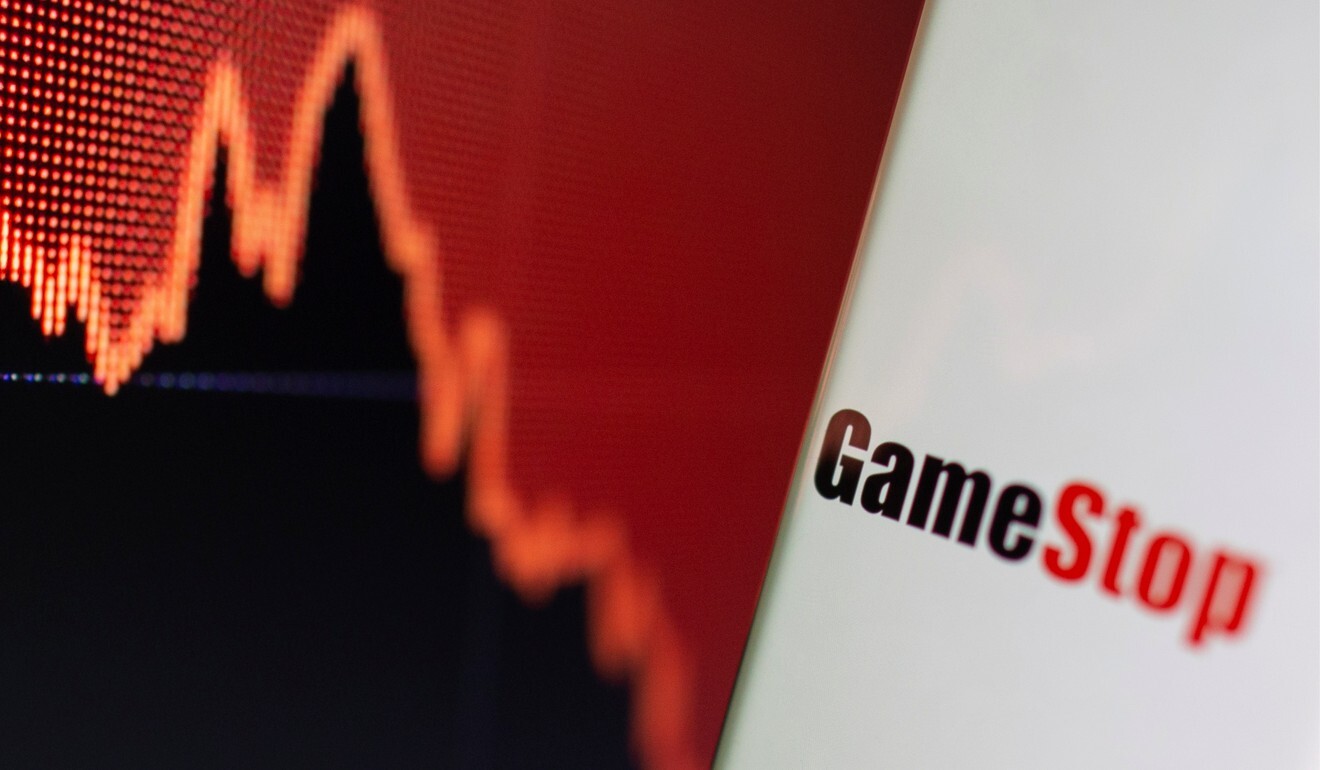
As GameStop stock frenzy dies, it’s the small retail investors who will suffer most
- Who’s to blame when the credulous masses, misled by pseudo advice on internet chat forums, believe they can instigate a pump-and-dump scheme and walk away unscathed? Regulators must bring in circuit breakers not just for meltdowns, but also for the upside melt-ups
It pitted the rookies en masse against Wall Street’s hedge fund short sellers. But the reasons for doing so were purely emotional, with investors fooling themselves that lipstick on the pig somehow changes things.
Narrative finance has been a powerful force in market-making ever since the swapping of rumours over coffee in London’s Change Alley began in the 1680s. However, we professional investors thought we’d outgrown rumours and hearsay in favour of sophisticated algorithmic valuation.
So we thought – but an excess of money and time is tempting even the most disciplined investor back into speculation and innuendo.
We should not be surprised that fake news and trolling have finally hit the financial markets. Like every social media movement, and financial scam, this one is driven by sharks preying on the mackerel.

The wisdom of the crowd is evident in the strong technical knowledge of those driving the story, even if the pearls of financial wisdom come from a guy in a grubby T-shirt and bandana, sitting in the safety of his mother’s house.
It reminds me of a colleague of mine, a besuited Wall St analyst, who just before the global financial crisis finally tracked down a (temporarily) successful hedge fund manager in a string vest to a suburban bedsit.
The protagonists daub the lipstick by claiming they are cleaning the swamp by bankrupting hated Wall Street short sellers. If hedge funds short a share, they are positioned to profit if the share price falls. However, if the share price goes up fast, you have to buy back the shares quickly to cover your losses. So, by encouraging the crowd, bandana man was able to create last week’s “short squeeze”.
Short sellers are unpopular because they are seen to bet on misfortune, especially by company directors whose fortune is linked to a runaway share price. Some stock exchanges wrongly blame them for falling markets, even though markets are quite able to fall without outside assistance.

The wise crowd last week found that the hedge funds had big short positions on GameStop, a heavily indebted business in a rapidly shrinking industry. At one point, the stock was up 1,000 per cent in 2021, although it has since collapsed, losing 72 per cent in two days.
The rise was driven by the madness of the mob betting their shirt on a small stock of which they had no knowledge. Many were briefly paper multimillionaires; most will lose their savings. Punters are like surfers, the smartest find a great wave to ride, but most wipe out as the wave breaks, losing not only their shirt but also their prized Hawaiian shorts.
This trend has been exacerbated by coronavirus lockdowns, giving punters time on their hands and conspiracy on their minds. The bull market last year, driven by easy money from central banks, has made everybody a lot less risk averse.
Bandana man will post phrases like: this is a “once in a lifetime opportunity”; “punish the sort of people who caused so much pain”; “take all the cash you have and buy buy buy”, and; “send GME [GameStop] to the moon”.
Where are the regulators? Like the offside rule in football, the laws on advising on investment can be fuzzy but there is a strong case that the regulators must get on top of sharks who break the law. To give investment advice to unsophisticated investors in major markets, you need to be registered with a regulator.
After many years of experience and a plethora of dreaded (and often ill-designed exams), even I am careful who I talk to. Bandana man appears to be allowed to give advice to anyone.
How the internet exposes the weak links in American democracy
The exchanges must also prevent speculative runaway prices by bringing in circuit breakers for the upside melt-ups, as well as the meltdowns. Hong Kong is notably one exchange that does not have a circuit breaker on small stocks that halt trading and allow brains to catch up with emotion.
A fool and his money are soon parted. This pump-and-dump scheme was perpetrated by malicious sharks on ill-informed conspiracy theorists, those with establishment-envy, and the rest of us who are plain greedy. But the madness of the mob is not new.
The GameStop attack was a tiny leak in a bubble driven by excess liquidity and won’t cause a systemic collapse of the markets. The next one might. And we haven’t even talked about bitcoin.
Richard Harris is chief executive of Port Shelter Investment and is a veteran investment manager, banker, writer and broadcaster, and financial expert witness

